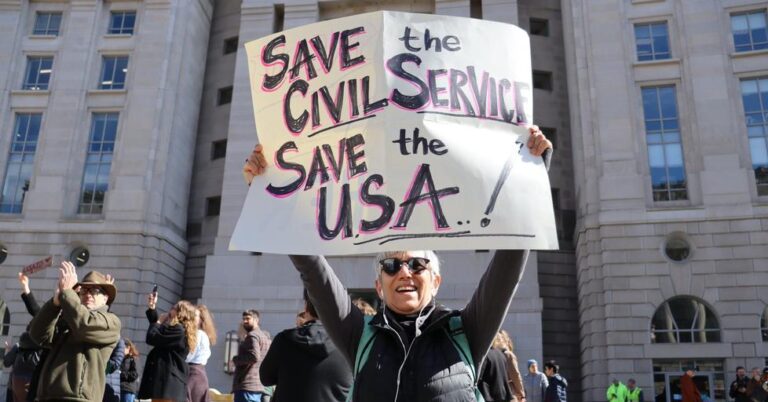
Alexandra Butler is a student at Harvard Law School.
Last week, new, seasonally-unadjusted state unemployment claims totaled 746,496. The total number of claims surpassed those of the week prior by over 24,000, leading some to warn of a stalling labor market. A recent report from the California Policy Lab reinforces some of these concerns. Specifically, the research shows a fluctuating job market in California, one that has undermined job stability and also has led to long-term unemployment. Many economists, however, are still optimistic about the coming months, as more of the population becomes vaccinated, and it becomes safer for business to reopen and workers to return.
A new policy in the Department of Labor’s Wage and Hour Division (WHD) will now allow regional offices to play a central role in enforcing wage protection laws in their jurisdictions. During the Trump administration, regional offices had limited autonomy when it came to protecting employees. Though these officials were closest to the issues, the national WHD Administrator had ultimate authority over whether employers would be subjected to certain enforcement actions. Many Republicans have responded that this policy reversal will ultimately hurt employees. According to them, decentralization will lead to over-enforcement and moreover, is unnecessary in light of the $322 million the WHD recovered in back-pay in FY 2019. Yet, the WHD’s acting principal deputy administrator, Jessica Looman, notes that this decision is just the first step in “thinking about . . . . ways we can prevent violations before they happen.”
As states continue to vaccinate their populations, farmworkers have had limited access to COVID-19 vaccines. Though the nature of farm work puts this population at a high risk for contracting the virus, advocates point to several impediments that have left this population widely unvaccinated. These obstacles include delayed eligibility, inaccessible clinic locations, misinformation, and for some, fear of deportation. To solve these issues, groups have turned to community partnerships and information campaigns, tactics that have shown to be an effective method of promoting and increasing vaccination.
In California, the push for gender pay equity is playing out in the courtroom, placing the Walt Disney Company on defense. In their recently amended complaint, former female employees allege that the company not only engages in “rampant gender pay discrimination”, but also requires pay secrecy. Prohibited by the 2015 California Fair Pay Act, pay secrecy forces employees to refrain from revealing their salary information to their colleagues. Ultimately, this policy makes “women . . . fight for fair pay with one hand tied behind their backs.” In addition to back pay and lost benefits, the plaintiffs are seeking structural changes at the company that will protect women and make pay equity a reality.
An upcoming Supreme Court case, Cedar Point Nursery v. Hassid, could eviscerate a California regulation that protects agricultural workers’ right to organize. Under this regulation, workers have the opportunity to engage with union leaders at their place of employment “during non-working hours.” During Monday’s oral argument, however, those challenging the policy will argue that the regulation constitutes a per se taking under the Fifth Amendment on the grounds that the “right to exclude unwanted persons . . . [is] a fundamental element of the property right that . . . cannot be infringed without compensation.” In an op-ed for the Washington Post, a UC Davis Law professor argues that striking down this regulation could have significant and detrimental implications for the organized labor movement.






Daily News & Commentary
Start your day with our roundup of the latest labor developments. See all
December 3
The Trump administration seeks to appeal a federal judge’s order that protects the CBAs of employees within the federal workforce; the U.S. Department of Labor launches an initiative to investigate violations of the H-1B visa program; and a union files a petition to form a bargaining unit for employees at the Met.
December 2
Fourth Circuit rejects broad reading of NLRA’s managerial exception; OPM cancels reduced tuition program for federal employees; Starbucks will pay $39 million for violating New York City’s Fair Workweek law; Mamdani and Sanders join striking baristas outside a Brooklyn Starbucks.
December 1
California farmworkers defend state labor law, cities consider requiring companies to hire delivery drivers, Supreme Court takes FAA last-mile drivers case.
November 30
In today’s news and commentary, the MSPB issues its first precedential ruling since regaining a quorum; Amazon workers lead strikes and demonstrations in multiple countries; and Starbucks workers expand their indefinite strike to additional locations. Last week, the Merit Systems Protection Board (MSPB) released its first precedential decision in eight months. The MSPB had been […]
November 28
Lawsuit against EEOC for failure to investigate disparate-impact claims dismissed; DHS to end TPS for Haiti; Appeal of Cemex decision in Ninth Circuit may soon resume
November 27
Amazon wins preliminary injunction against New York’s private sector bargaining law; ALJs resume decisions; and the CFPB intends to make unilateral changes without bargaining.